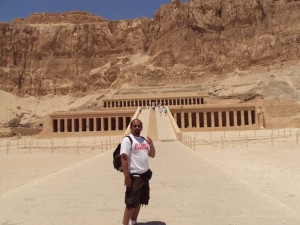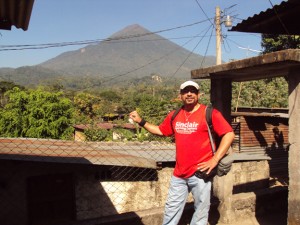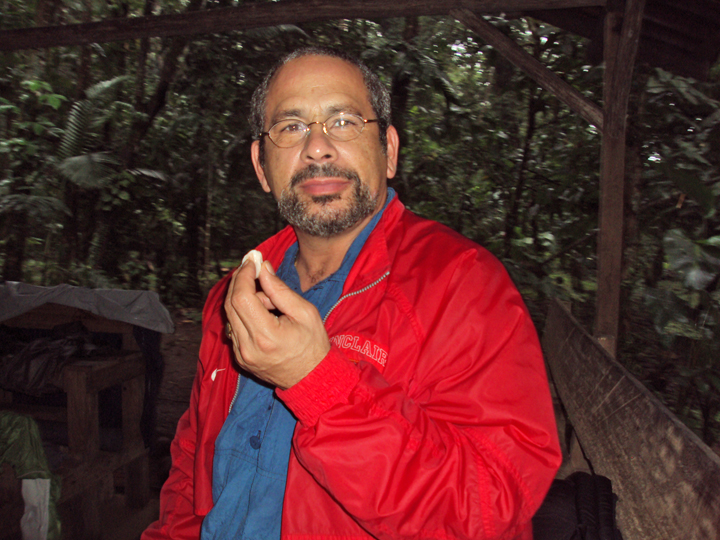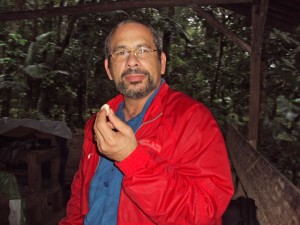Dr. Marc Smith, professor of Biology at Sinclair Community College, describes himself as “an exacting teacher,” who wants his students to not only learn, but to also make learning itself a priority.
“I want [students] to understand the value of the middle class values that we espouse here, so that education can change their lives – because education changed mine,” said Smith.
Smith dropped out of high school and joined the United States Air Force, but his educational journey was far from over.
Smith earned his GED, and during his career in the Air Force he earned an Associate of Applied Science from The Community College of the Air Force, a Bachelor of Science from Park College, completed his pre-med studies at Wright State University, and earned a Master’s of Science in Organizational Administration at Central Michigan University.
He retired from the Air Force as a Technical Sergeant (E-6) and came to Sinclair in 1992 through the Grow Our Own Program, and began teaching full-time while still furthering his education, earning a Master of Science in Biology from Wright State University and a Ph.D. in Higher Educational Leadership from the University of Dayton in 2006.
Smith said that he wants to stimulate and push students to be excellent in their education and wants to get the message out: “If he did it, I can do it.”
He received the Student Advocacy Award from Sinclair in 1995 and continues to be student-centered in and out of the classroom with support, confidence and accessibility.
“My favorite thing is encouraging students to go beyond their comfort zones,” said Smith. “And to realize, ‘I can do this.’”
Smith referred to a long-time acquaintance and former chair of the Sinclair Biology Department, Dr. Paul Rab, as being a role model and instrumental force in his development as a faculty member.
Smith said that Rab wanted him to become an excellent biologist and encouraged him to take a myriad of science-related courses as he pursued his master’s degree at Wright State University.
During this time, Smith was also earning a minor in Geology and traveled to study many national parks across the United States and recently he traveled to Costa Rica for the National Science Foundation to study rainforest ecology.
He incorporates these experiences into his biology class lectures and tries to illustrate the integration of these scientific disciplines to his students.
“An education should change the way you think,” said Smith.
Smith said he has seen extreme poverty during some of his international travels, such as when he went to Sierra Leone in Africa. Smith also said American students have all the opportunities in the world — and have no excuse but take advantage of those opportunities.
“I want [students] to center their world around education, instead of having their world centered around their jobs,” said Smith. “Education is what’s going to change their lives.”
Smith said the biggest obstacle to overcome when learning and striving to do good work is time management, and that devotion and the desire to put in the time is required to be successful.
“This is not a sprint, it’s a marathon,” said Smith, referring to the practice of continual learning. “But it’s a great way of life.”





